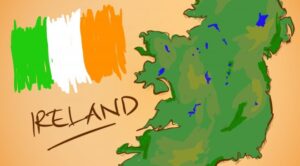Key Moments:
- François Bayrou, a key supporter for gambling operators, lost a no-confidence vote, ending his term as Prime Minister.
- French operators reported to Senate hearings that their effective tax rates reach up to 70% of gross gaming revenue.
- Potential prime minister candidates have shown mixed support for gambling industry positions, leaving future policy uncertain.
Government Change Leaves Online Casino Efforts in Limbo
The French gambling industry is grappling with an uncertain future after the departure of Prime Minister François Bayrou, following his defeat in a no-confidence vote. Bayrou had played a critical role as one of the few government voices backing the sector, notably opposing proposed tax increases that could push operator costs up to 70% of gross gaming revenue. His advocacy included seeking exceptions for horse racing from higher taxes and warning that escalating costs could lead to job losses, mirroring concerns raised in the UK. With Bayrou gone, the ongoing push for online casino regulation now lacks clear governmental support.
Taxation Pressures Intensify on French Operators
Operators in France face some of the steepest tax burdens in the European gaming sector. During recent Senate hearings, Betclic CEO and AFJEL President Nicolas Béraud noted that effective tax rates, when factoring in VAT, media taxes, and betting levies, can approach 70% of gross gaming revenue for French operators. Béraud pointed out that these rates “contrast with around 20% to 35% in many other European markets.” This challenging landscape positions France as one of the most expensive markets for gambling companies to operate.
Grégory Rabuel, President of Casinos de France and CEO of Groupe Barrière, confirmed that France’s 202 casinos oppose legalizing online casinos, but indicated willingness to adapt if regulation proceeds. This sentiment aligns with recent reports showing that land-based operators, while reluctant, acknowledge the potential for increased online competition.
| Tax Rate (France) | Other European Markets |
|---|---|
| Up to 70% of GGR | 20% – 35% of GGR |
Leadership Prospects and Policy Outlook
The search for Bayrou’s successor introduces additional uncertainty for the gambling landscape. Several candidates, including Sébastien Lecornu and Gérald Darmanin, bring backgrounds from the Michele Barnier government, which had previously explored online casino legislation. Bernard Cazeneuve is another contender, recognized for his past support of land-based gambling expansion and for commissioning studies on reintroducing legal gambling in Paris, aiming for benefits akin to those seen in London.
Despite this, none of the leading candidates have positioned themselves as clear advocates for easing gambling taxes or advancing online casino legalization, deepening concerns over future regulatory direction.
Future of Online Casinos Remains Unclear
In recent years, online casino legalization had begun to gain traction in French political circles, helped by Senate hearings that allowed operators to present arguments for expanding regulated iGaming. Progress, however, often relied on support from key government figures such as Bayrou, whose more neutral stance was seen as less obstructive compared to outright opposition elsewhere in government ranks. His exit leaves operators facing the dual challenge of establishing relations with new political leaders and enduring some of Europe’s highest gambling taxes.
The path forward for French gambling operators, and the future of online casino regulation, will depend heavily on how the incoming government approaches both tax policy and the demands of a highly competitive European market.
- Author


